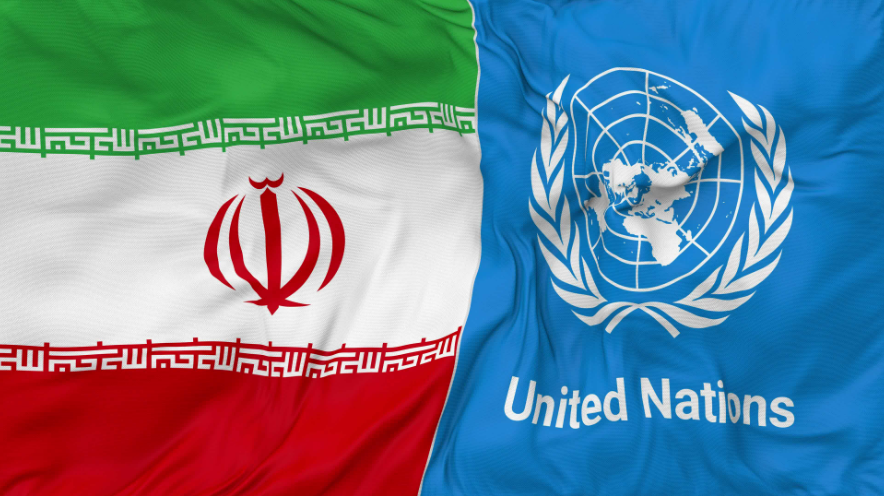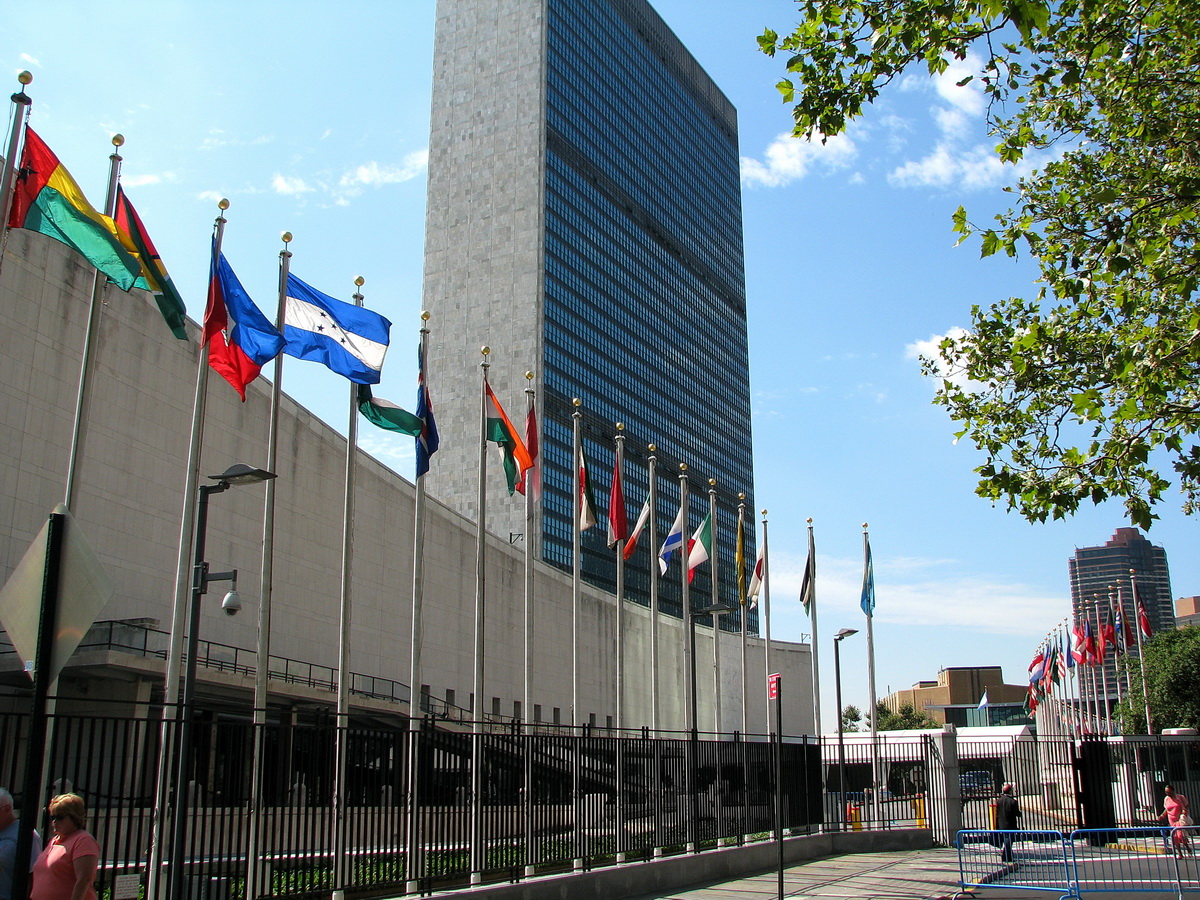There is much confusion and controversy about the plan of the Israeli government to extend its legal administration and excercise its sovereignty in certain parts of Judea and Samaria per 1 July 2020. This Q&A is intended to assist the reader in understanding what international law says about the plans.
What is Israel planning to do?
The Israeli government plans to apply the Israeli Law and Administration Ordinance of 1948, which makes possible the application of Israeli civil law, jurisdiction, and administration to territories of the land of Israel that the State of Israel controls, as of 1st July 2020. That is what happened when Israel declared the united city of Jerusalem to be part of Israel, after the Six Day War in June 1967. It involves replacing military governance under military laws with civil governance under Israeli civil laws, i.e. treating the areas administered as Israeli domestic areas instead of treating them as territories under military control.
This law will be applied to some or all settlement blocs and/or to the Jordan valley. The precise details are not yet known.
Why is there so much confusion about the status of the ‘West Bank’?
Confusion has arisen because there is little understanding of the legal basis for the State of Israel, especially the significance of the Mandate for Palestine. Between the creation of the State of Israel in 1948 and the Six Day war in 1967 there was no discussion about the Mandate. It is only more recently that the legal foundations of the State of Israel – and its territorial scope – have been discussed.
Further, Israel did not (with the exception of Jerusalem, which was immediately incorporated into Israeli jurisdiction) officially incorporate these territories into the sovereign territory of the State of Israel. Rather, it chose (a) to apply voluntarily parts of the law of belligerent occupation, in order to ensure the protection of the non-Israeli population of those territories, and (b) to negotiate terms of peace with its neighbors.
What is “annexation”?
“Annexation” refers to the forcible taking of territory belonging to another State.
Generally, an act by an occupying power to incorporate occupied territory into the territory of the occupying power is illegal because it is assumed that the occupation commenced through the use of force, and the occupying power has no valid claim to sovereignty over that territory.
In any given case, two elements need to be proven to establish that such actions would constitute annexation:
- an illegal use of force; and
- the territory belongs to another State.
Is “annexation” always illegal?
As a general rule, the annexation of territory belonging to another State through an unlawful use of force is illegal under international law. However –
- There is no precedent for the idea that the prohibition on “annexation” is applicable to territory that does not belong to any other State;
- there is no precedent for the application of the general rule where the “annexing” State has a prior and superior sovereign claim to the territory;
- there is debate as to whether territory lost by an aggressor State to a State defending itself against aggression can be legally acquired by the defender.
Would Israel’s proposed action constitute illegal annexation under international law?
In our view this would not necessarily violate the principle that territory cannot be acquired by force. There are three main reasons:
First, the ordinary interpretation and consistent application of international law suggests that Israel has the strongest claims to territorial sovereignty in the ‘West Bank’. There is no universally agreed rule that the prohibition on acquisition of territory by force prohibits a State from fully integrating (parts of) territory to which it has a prior claim to sovereignty.
Second, no other State has a legitimate claim to this territory.
Third, Israel took control of the territory in 1967 through the defensive use of force, which is not illegitimate.
Will Israel use force to execute its plan?
No, this is an administrative action.
Did Israel gain control of the ‘West Bank’ by means of illegal use of force?
No, this was an act of self-defense from the side of Israel in June 1967. Jordan was the aggressor. It was universally accepted in 1967 that Israel did not use illegal force in the June 1967 Six Day War.
Is Israel’s occupation of the ‘West Bank’ illegal?
No, occupation is not per se illegal.
It is sometimes argued that because occupation is intended to be temporary, there may come a time when an occupation must be terminated. But that in itself does not mean that Israel is obliged to unilaterally withdraw from all of the territories.
Does Israel have a valid claim to sovereignty over the ‘West Bank’?
Israel has very strong claims to sovereignty over the ‘West Bank’ under international law, on the basis of:
- specific legal title deriving from the San Remo resolution (1920) and the Mandate for Palestine (1920) – binding treaties under international law;
- inherited title under uti possidetis juris – a principle of international law that serves to preserve the boundaries of colonies and Mandates emerging as States;
- de facto title through possession; and
- legal and moral title arising from self-defence and necessity.
Are these territories “occupied”, and if so what does that mean?
It is arguable that while parts of these territories are occupied de facto (i.e. in a practical sense through the application of Israeli military administration), they are not “occupied” de jure (i.e. within the meaning of international humanitarian law) because they are not, and have never been, part of another State. It is acknowledged, however, that this interpretation of international law has been widely rejected; the mere fact that one State has taken control of territory in the course of a conflict is enough to trigger the law of occupation (see e.g. ICJ Wall Advisory Opinion).
However even if Israel qualifies as an “Occupying Power” under international law, this does not mean that its prior claims to sovereignty (based on the Mandate for Palestine, etc.) are nullified. In other words, an Occupying Power can have and assert sovereignty acquired prior to the commencement of the occupation. That is exactly the situation regarding Israel and the ‘West Bank’.
Is “Palestine” a State?
The claim that “State of Palestine” is a state in international law is disputed by most international lawyers, even by many advocates for the Palestinian cause. It is universally agreed that the Palestinians do not (yet) satisfy the criteria for statehood under international law. Most importantly, they do not have a government that is able to operate effectively and independently of other governments.
Is Israel responsible for the fact that Palestine is not a State?
No, Israel is not solely responsible for the fact that Palestine is not a State:
- the Palestinians have rejected many offers of statehood which would have given them most or all of the ‘West Bank’ (1947, 2000, 2008),
- systemic and enduring Palestinian terror and rejection of Israel as a Jewish state are also causes of the break-down in negotiations.
Do the Palestinians have a right to become a State?
International law does not have a general rule that the right to self-determination confers a right to statehood. Self-determination may be expressed by many other means, such as by the Palestinian proposal for a “One-State solution”.
The fact that many UN resolutions state that the Palestinians should have a State of their own does not mean they have a legal right to Statehood.
Do the Palestinians currently have sovereignty over the ‘West Bank’?
Self-determination is one of the most ambiguous concepts in international law. There is a school of thought that argues that a “State of Palestine” holds sovereignty over the territory of the ‘West Bank’, or that the Palestinian right of self-determination gives the Palestinian people the legal equivalent of territorial sovereignty. However the claim that self-determination is legally equivalent to territorial sovereignty is not generally accepted. Sovereignty is an attribute of statehood, i.e. only States can have sovereignty over territory. Because the PLO is not a State, it cannot hold sovereignty.
Does the Palestinian people have a right to self-determination over all of the ‘West Bank’?
Even if the whole of the ‘West Bank’ is “occupied” territory, this does not mean that the Palestinian people have an absolute right to self-determination over all of the ‘West Bank’ including East Jerusalem. The Palestinian right to self-determination must be balanced with the rights of Israel as a sovereign state to territorial integrity, political inviolability and secure borders:
First, Israel has never accepted the 1949 Armistice Lines as borders.
Second, the territorial scope of the Palestinian right to self-determination depends on many factors, including its compatibility with the territorial inviolability of the State of Israel.
Third, Israel as a sovereign state has a right to borders that are secure (free from force and threats of force). It is widely accepted that the “Green Line” (the 1949 Armistice Lines) are not secure.
Would Israel’s action violate the Palestinians’ right to self-determination?
This is a complex issue and it seems that international law does not provide a clear answer. The Palestinian people have a right to self-determination, and Israel has an obligation to cooperate and negotiate.
However, the obligation to negotiate is not unlimited. Further, the Palestinian people do not have a demonstrated right to self-determination over the whole of the ‘West Bank’, nor is the right to self-determination absolute (as noted above). Whether applying Israeli law and jurisdiction to specific areas in the ‘West Bank’ would infringe their right would depend on the specific details. Even then, it is possible that international law does not provide a definitive answer.
Would Israel’s action violate UN resolutions?
The fact that Israel’s proposed actions may appear to “breach” UN resolutions does not make them illegal.
First, UN Resolutions must be interpreted in light of existing international law.
Further, UN Resolutions cannot overturn or nullify the terms of the Mandate for Palestine. The rights and obligations under the Mandate are protected by Article 80 of the UN Charter.
In any event, UN General Assembly (UNGA) resolutions are not binding under international law. Rather, they are exercises of merely recommendatory powers, pursuant to Article 18(2) of the UN Charter. Although they may provide evidence establishing the existence of a rule or the emergence of an opinio juris, i.e. a generally accepted and compulsory principle under international law, this depends on factors such as its content, the conditions of its adoption and whether an opinio juris exists as to its normative character. General Assembly resolutions concerning Palestine show an aspiration that Palestinian statehood be achieved, but do not evidence any change in the generally applicable rules of international law. The UNGA cannot create new law.
UN Security Council Resolutions since 1967, for example UNSC resolutions 476 and 478 condemning Israel’s incorporation of Jerusalem into its territory, were all passed under Chapter VI of the UN Charter. They are neither binding nor evidence of opinio juris as to a generally applicable principle of international law.
Even if the Security Council were to adopt a resolution under Chapter VI of the Charter condemning Israel’s actions, this would not render the action per se illegal.
Do the Oslo Accords prohibit Israel from applying its law to these territories?
The Oslo Accords are a series of agreements between Israel and the PLO intended to implement UN Security Council resolution 242. That resolution calls for the withdrawal of Israeli forces from “territories occupied in the recent conflict” but on condition of “termination of all claims or states of belligerency and respect for and acknowledgment of the sovereignty, territorial integrity and political independence of every State in the area” (i.e. including Israel) and the establishment of “secure and recognized boundaries free from threats or acts of force.”
The Oslo Accords are still operative and binding. The Interim Accord (Oslo II, 1995) prohibits either party from taking unilateral steps to change the status of the territories.
The territory to which Israel intends to apply its law and jurisdiction are all in Area C as set out in the Oslo Accords, which are under exclusive Israeli civil and security control. Thus, it is unlikely that Israel’s actions would “change the status” of these territories in any material sense. The area is already under Israeli de facto legal control.
Even if Israel’s actions would constitute a “change of the status of the West Bank”, that does not mean that the proposal of the Israeli government contravenes international law. Israel’s extension of its civil laws is itself a legal response to non-implementation of the Oslo Accords by Palestinian authorities. PLO violations permit Israel not to comply with (a part of) its obligations.
(The PLO has consistently violated the Oslo Accords in various and numerous ways, including by not renouncing the intent to destroy and replace the State of Israel. More to the point, “State of Palestine” is acting on the international level as a State with the ‘West Bank’ and Gaza as its territory, which amounts to taking steps with the effect of changing the status of these territories.)



